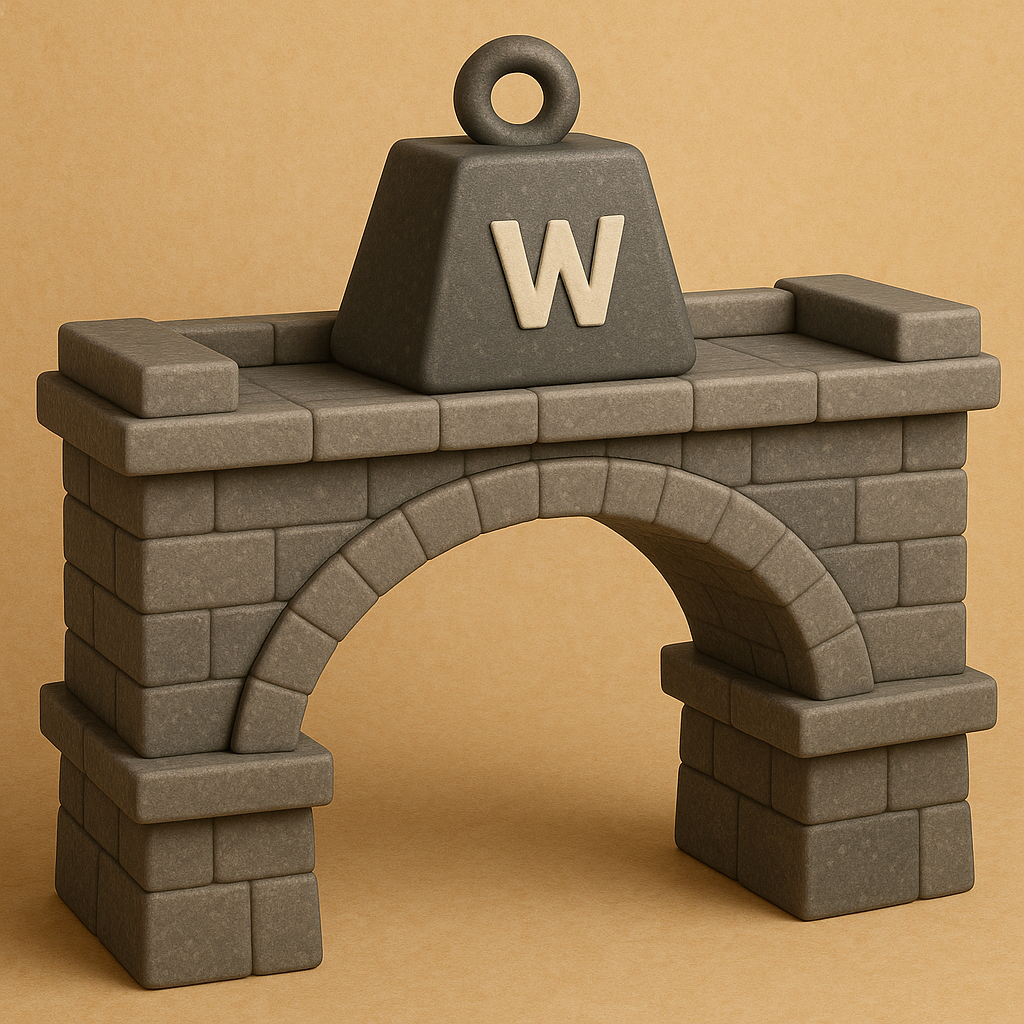Solid
Definition
Solid refers to a state of matter characterized by a fixed shape and volume, and it can also describe something strong, reliable, or substantial.
Parts of Speech
- Adjective
- Noun
Pronunciation
American English
- IPA Pronunciation: /ˈsɑː.lɪd/
- Respelling: SAH-lid
British English
- IPA Pronunciation: /ˈsɒ.lɪd/
- Respelling: SOL-id
Etymology
The word "solid" originates from the Latin "solidus," meaning "whole, dense, or firm." It passed into Old French as "solide" before entering Middle English in the late 14th century, retaining its meaning of strength and stability.
Derivatives
- Solidity (noun)
- Solidify (verb)
- Solidly (adverb)
- Solidification (noun)
- Solid-state (adjective)
Synonyms
- Firm
- Strong
- Stable
Antonyms
- Liquid
- Weak
- Fragile
Usage
The term "solid" is commonly used in physics to describe a state of matter and in everyday language to refer to reliability or strength. For example, "The ice is solid enough to walk on," or "She gave a solid performance."
Related Terms
- Mass: A measure of the amount of matter in an object.
- Density: The degree of compactness of a substance.
- Rigid: Stiff and unyielding.
Detailed Definitions
Adjective
- Having a firm and stable form: Describes something that is not liquid or gaseous and maintains its shape.
- Example: "The sculpture was carved from a single block of solid marble."
- Strong or reliable: Refers to something or someone dependable or sturdy.
- Example: "The bridge’s construction is solid."
- Continuous or unbroken: Describes something without gaps or interruptions.
- Example: "The wall was made of solid stone."
Noun
- A state of matter: Refers to a form of matter characterized by a fixed shape and volume.
- Example: "Ice is the solid state of water."
- A geometric shape: Refers to three-dimensional figures in mathematics.
- Example: "The sphere is a common solid in geometry."
solid



Mandarin Chinese 🇨🇳
- 硬 (Yìng)
- IPA Pronunciation: /iŋ˥/
- English Respelling: Ying
- 实体 (Shítǐ)
- IPA Pronunciation: /ʂʈʂʰi˨˩˦ tʰi˨˩˦/
- English Respelling: Shih-tee
Hindi 🇮🇳
- ठोस (Ṭhos)
- IPA Pronunciation: /ʈʰoːs/
- English Respelling: Thos
- दृढ़ (Dṛḍh)
- IPA Pronunciation: /d̪ɽɖʱ/
- English Respelling: Dridh
Spanish 🇪🇸
- Sólido
- IPA Pronunciation: /ˈsolido/
- English Respelling: So-lee-doh
- Compacto
- IPA Pronunciation: /komˈpakto/
- English Respelling: Kom-pak-toh
French 🇫🇷
- Solide
- IPA Pronunciation: /sɔ.lid/
- English Respelling: So-leed
- Ferme
- IPA Pronunciation: /fɛʁm/
- English Respelling: Fer-muh
Modern Standard Arabic 🇸🇦
- صلب (Ṣalb)
- IPA Pronunciation: /sˤalb/
- English Respelling: S-alb
- جامد (Jāmid)
- IPA Pronunciation: /dʒaːmid/
- English Respelling: Ja-meed
Bengali 🇧🇩
- দৃঢ় (Driḍh)
- IPA Pronunciation: /drid̪ʱ/
- English Respelling: Dri-dh
- ঠিক (Ṭhik)
- IPA Pronunciation: /ʈʰik/
- English Respelling: Thik
Russian 🇷🇺
- Твёрдый (Tvjordyj)
- IPA Pronunciation: /tvʲɵrdɨj/
- English Respelling: Tvyordyy
- Сплошной (Sploshnoj)
- IPA Pronunciation: /spləˈʂnoj/
- English Respelling: Sploshnoy
Portuguese 🇵🇹
- Sólido
- IPA Pronunciation: /ˈsɔlɨdu/
- English Respelling: So-li-doo
- Firme
- IPA Pronunciation: /ˈfiʁmi/
- English Respelling: Feer-mee
Indonesian 🇮🇩
- Padat
- IPA Pronunciation: /pa.dat/
- English Respelling: Pa-dat
- Kokoh
- IPA Pronunciation: /ko.koh/
- English Respelling: Ko-koh
German 🇩🇪
- Fest
- IPA Pronunciation: /fɛst/
- English Respelling: Fest
- Solide
- IPA Pronunciation: /zoˈliːdə/
- English Respelling: Zo-lee-deh
Japanese 🇯🇵
- 堅固 (Kenko)
- IPA Pronunciation: /kenko/
- English Respelling: Ken-ko
- 固体 (Kotai)
- IPA Pronunciation: /kotai/
- English Respelling: Ko-tai
Vietnamese 🇻🇳
- Chắc chắn
- IPA Pronunciation: /cɛ̌k cɛ̌ˀn/
- English Respelling: Chek-chan
- Rắn chắc
- IPA Pronunciation: /ɹǎːn cɛ̌ˀk/
- English Respelling: Ran-chek
Korean 🇰🇷
- 단단한 (Dandanhan)
- IPA Pronunciation: /tandanhɐn/
- English Respelling: Dan-dan-han
- 견고한 (Gyeongohan)
- IPA Pronunciation: /ɡjʌnɡohan/
- English Respelling: Gyeon-go-han
Turkish 🇹🇷
- Sağlam
- IPA Pronunciation: /saːɫam/
- English Respelling: Sa-lam
- Katı
- IPA Pronunciation: /kaːtɯ/
- English Respelling: Ka-tuh
Urdu 🇵🇰
- ثابت (Thābit)
- IPA Pronunciation: /t̪ʰɑːbit̪/
- English Respelling: Tha-bit
- مضبوط (Mazbūt)
- IPA Pronunciation: /mʊzbʊːt̪/
- English Respelling: Maz-boot





